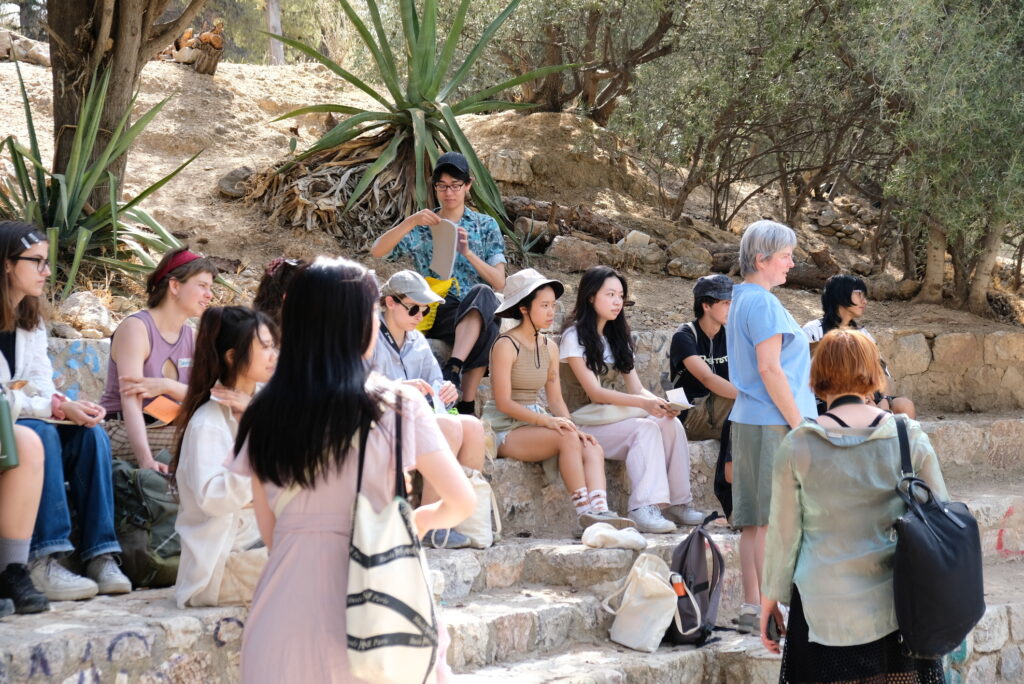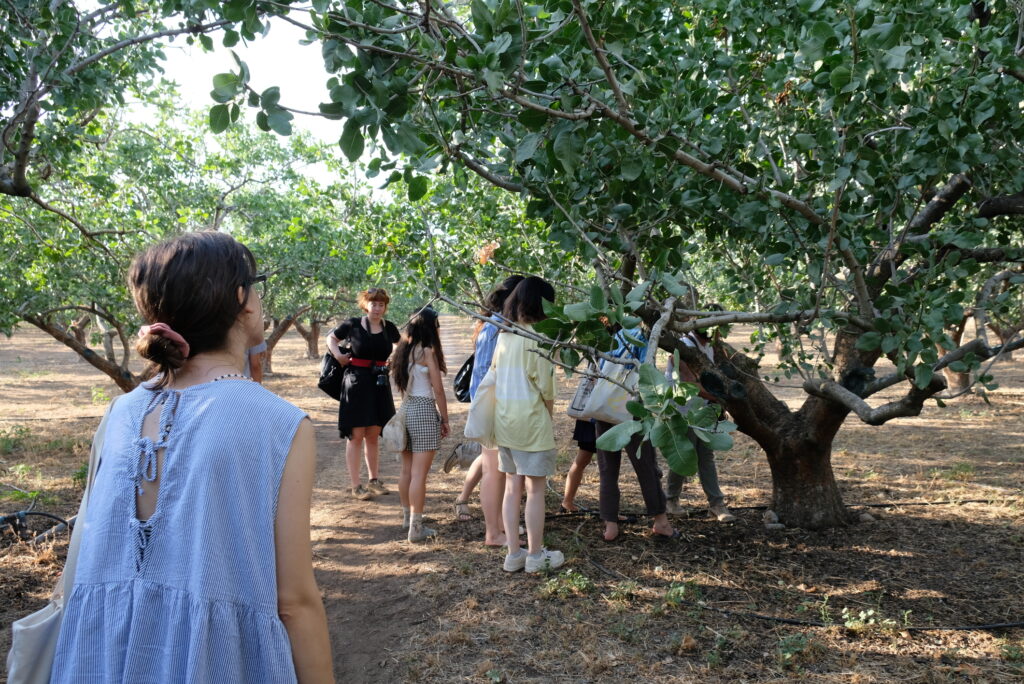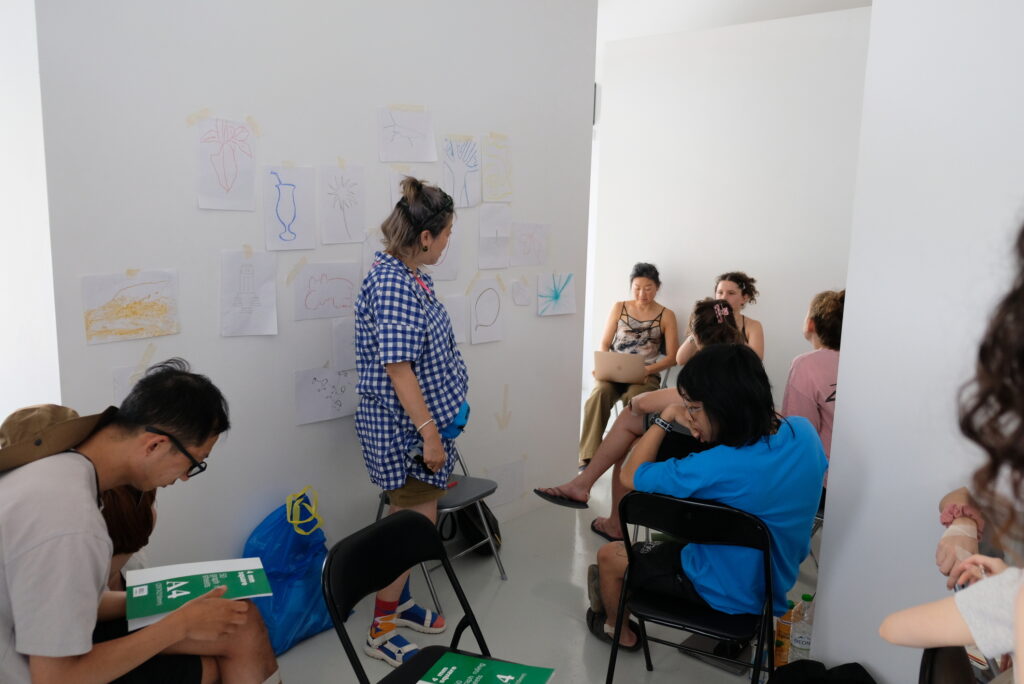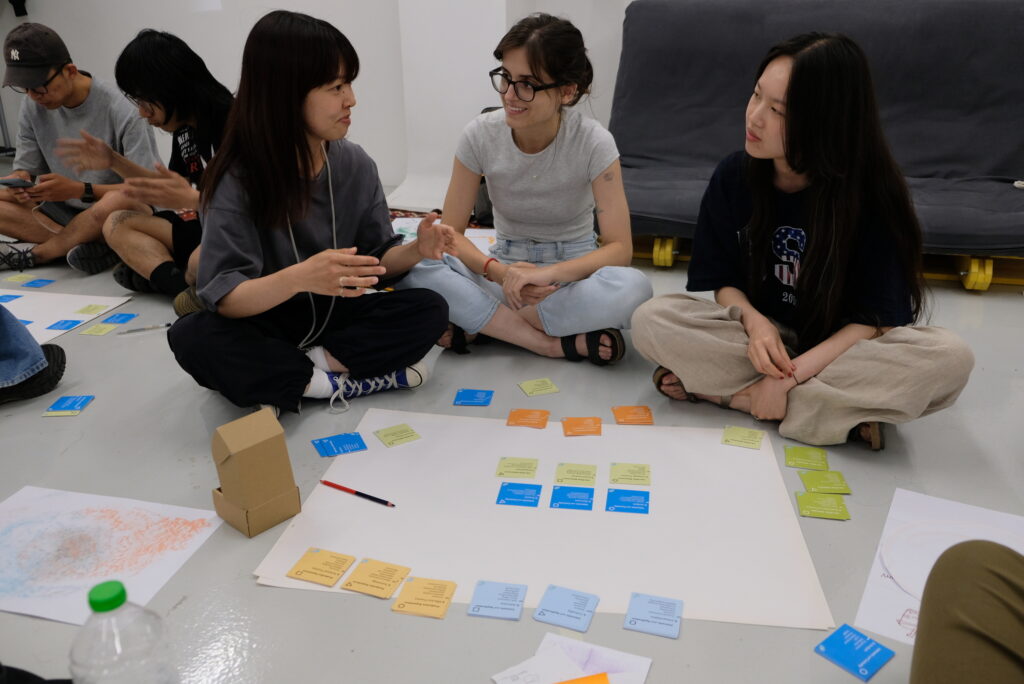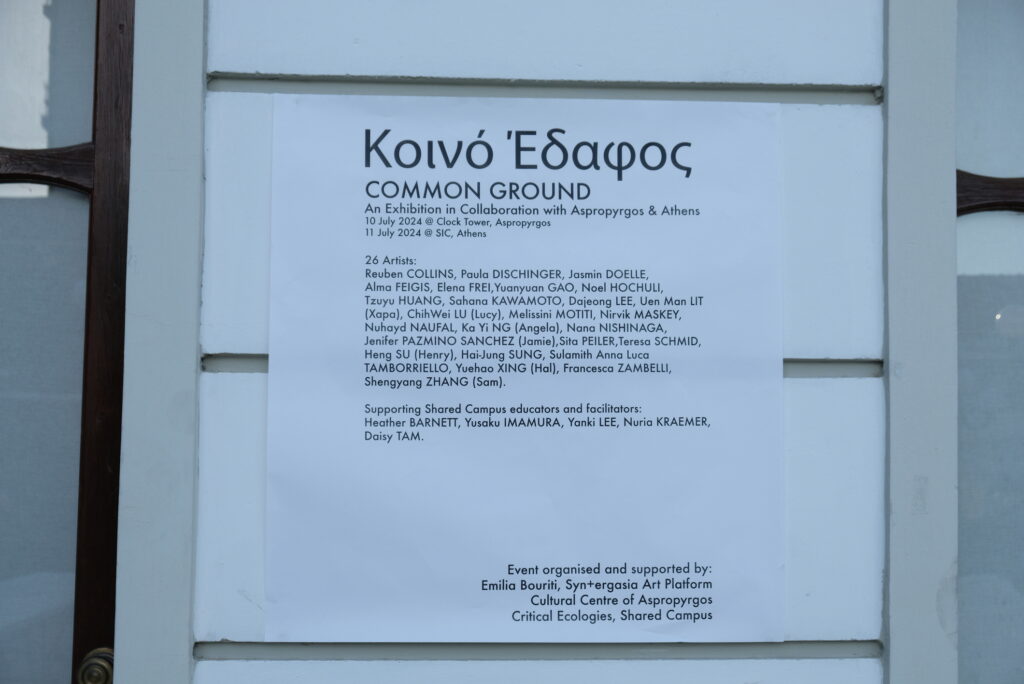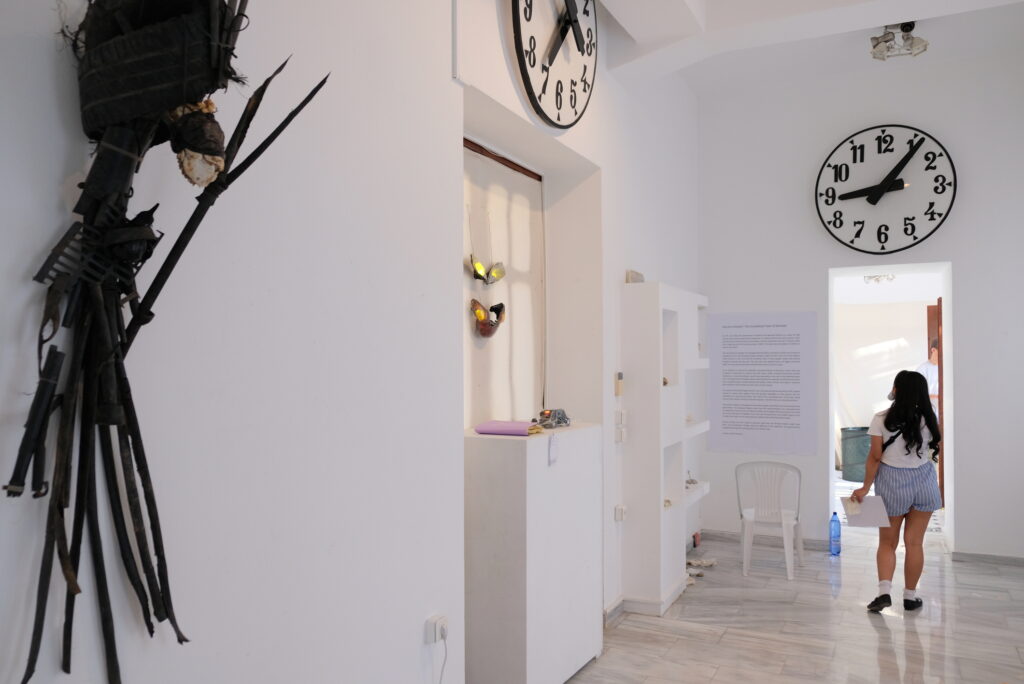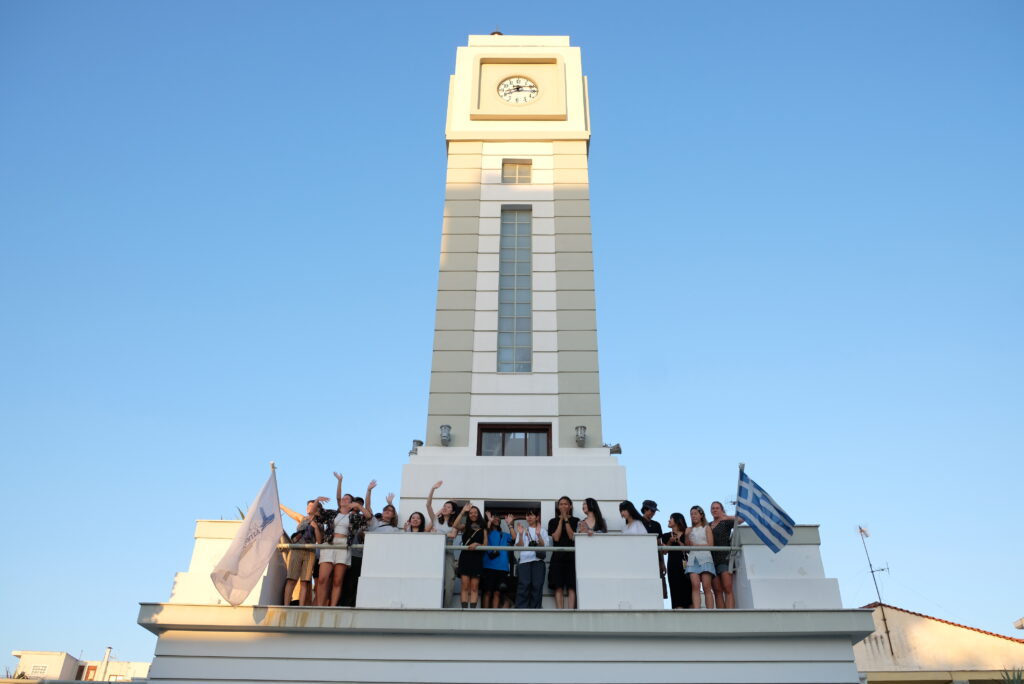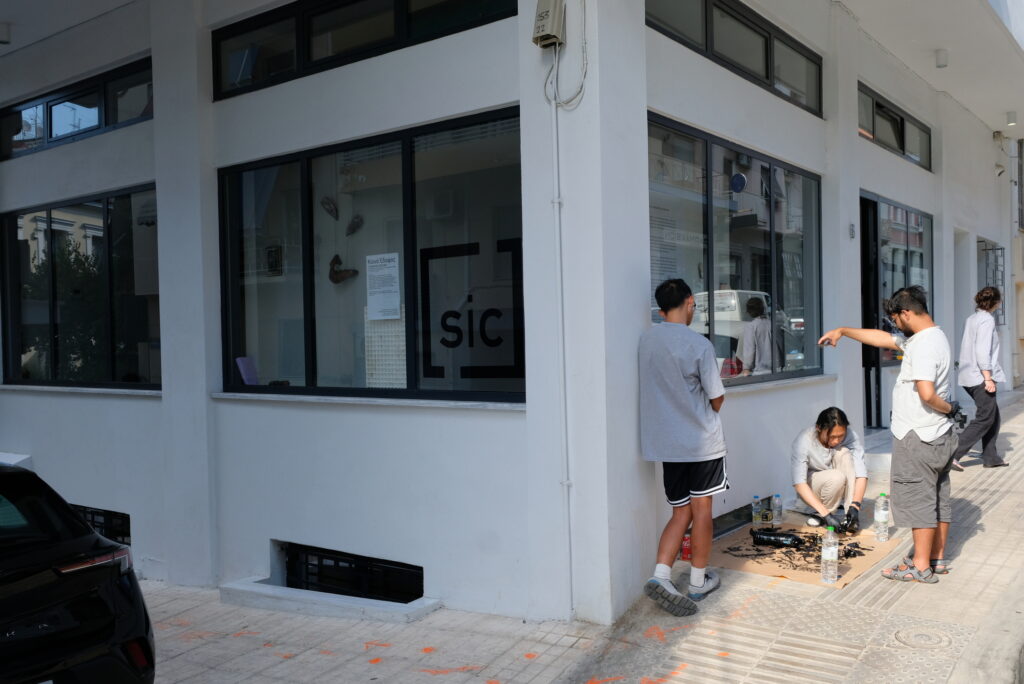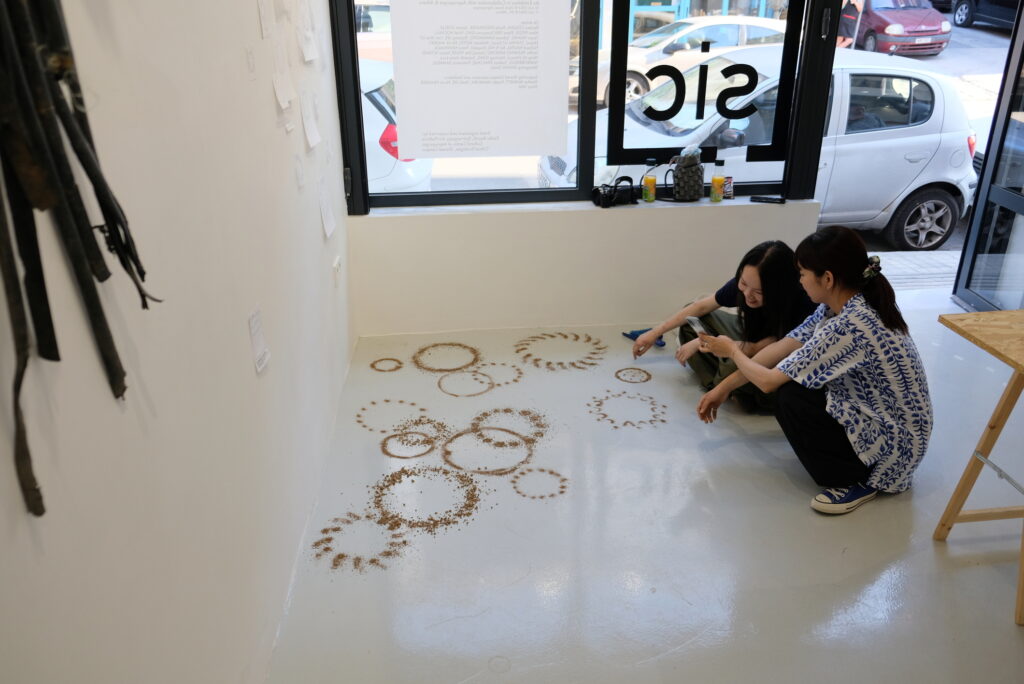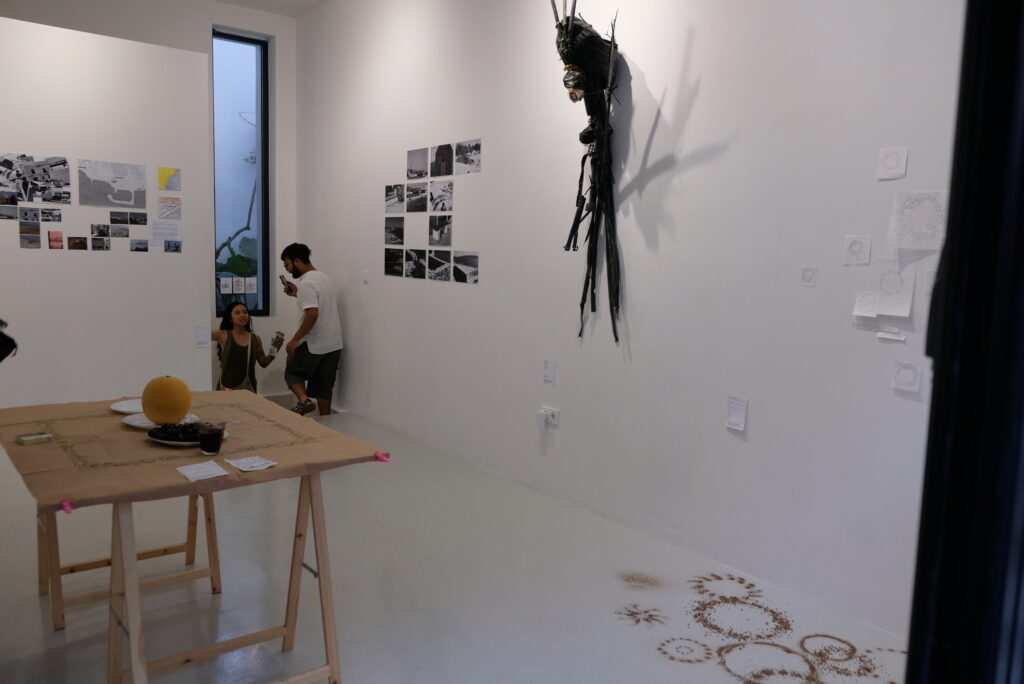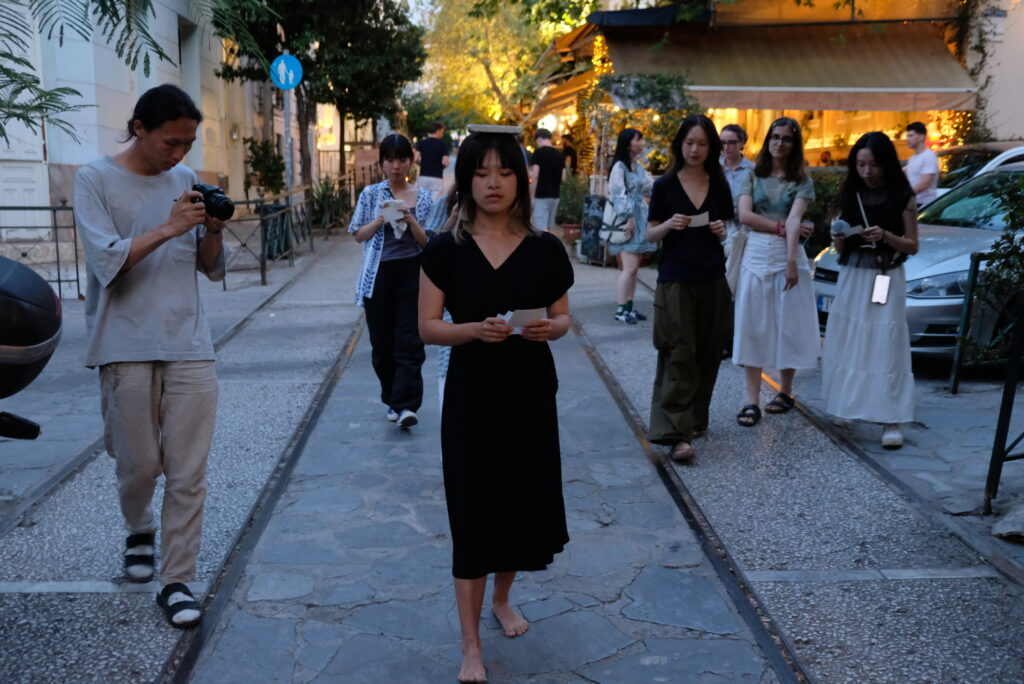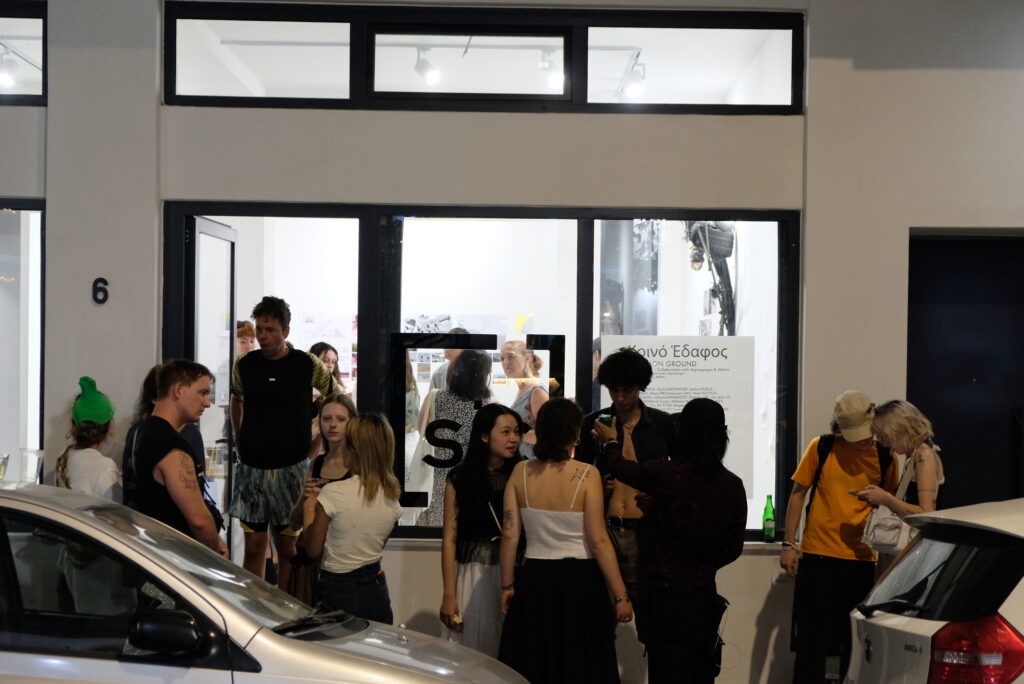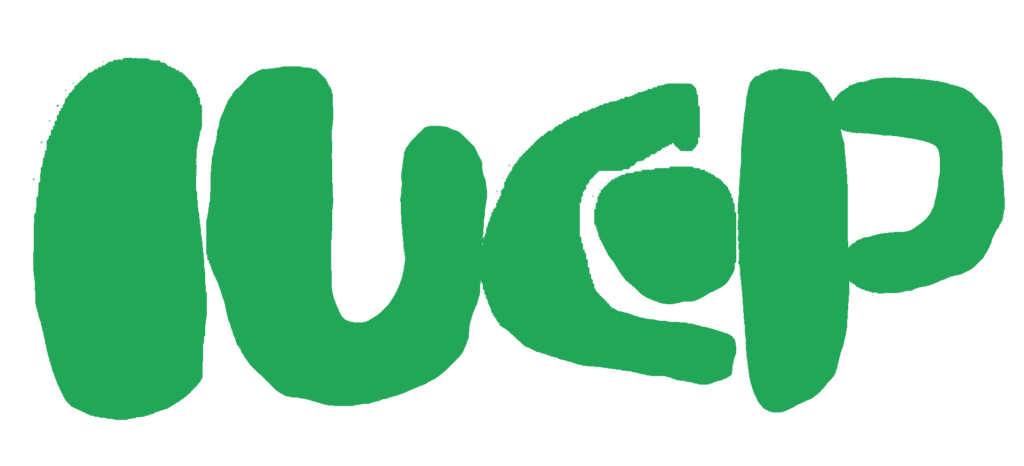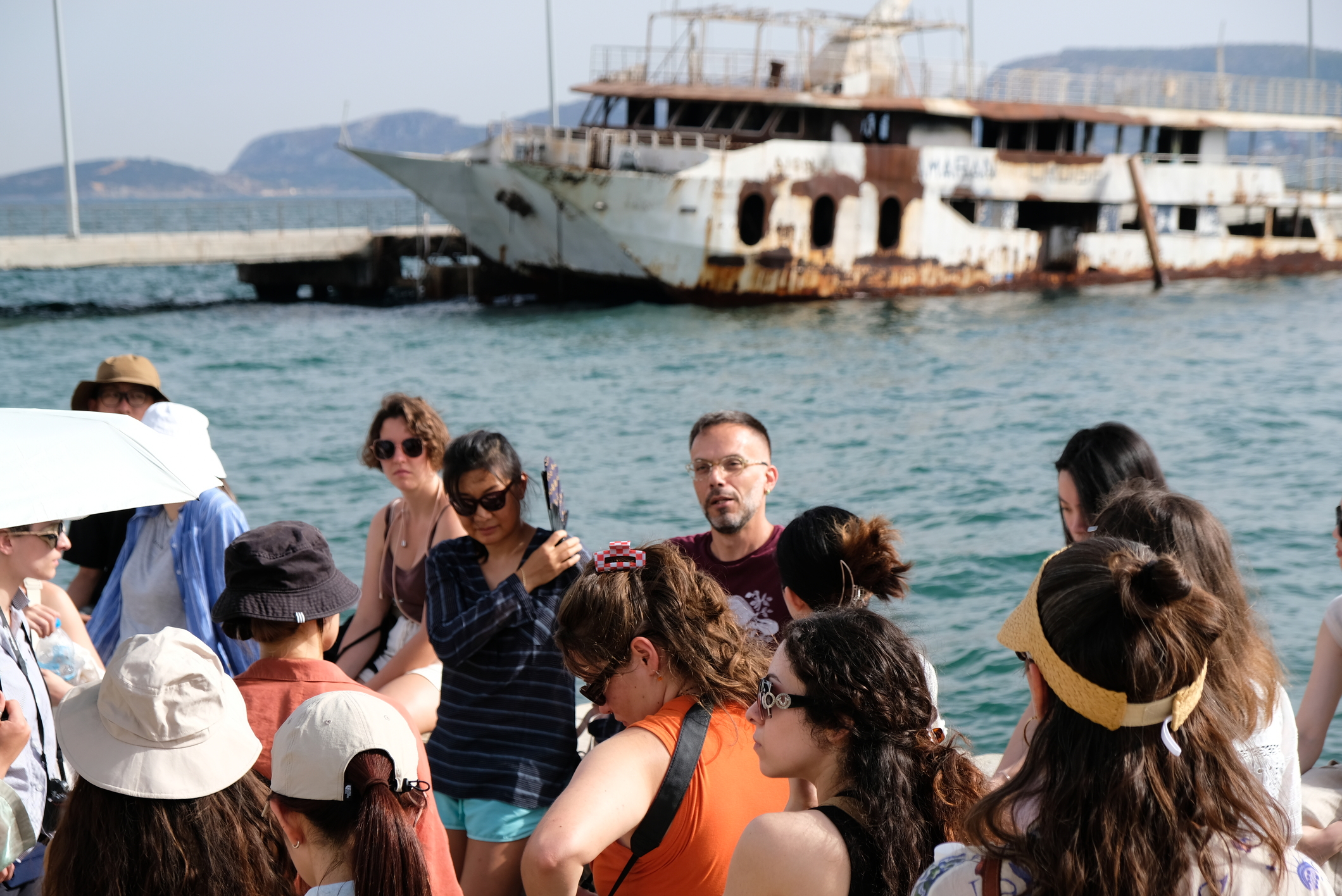DATE
2024/7/1 – 7/12
LOCATIONS
[SIC] Space for International Cooperation (Athens, Greece)
Eleusis City
Aspropyrgos City
FACULTY MEMBERS
Heather BARNETT, Pathway Leader MA Art and Science (UAL)
Ken EGAMI, Project Assistant Professor, Global Support Center, Tokyo University of the Art (TUA)
Yusaku IMAMURA, Course Leader, Global Art Practice, Tokyo University of the Arts (TUA)
Nuria KRÄMER, Programme Manager, Shared Campus | Deputy Head, Transcultural Collaboration
GUEST LECTURERS
Emilia Bouriti (Artist, Greece)
Sadhna Jain (UAL) > online input (need to check)
Antigone Theodorou (artist talk on 7.4)
Leonidas Argyros (7.2)
Local team: Georgios Papadopoulos
COOPERATIONS
Aspropyrgos City Hall
[SIC] Space for International Cooperation
Farmers in Aspropyrgos (Dimitris and Vasilis)
Extractivism describes processes of resource exploitation, where humans take from the earth, in its material substance, its treatment of peoples, and the prevailing value systems of profit and growth. Extractivist practices have an enormous impact on environmental, political, and social systems as well as cultural and creative responses.
Sited in and around Athens — the city where democracy is thought to be born and an important node in the network of global trade — this summer school invited students to investigate and map extractivist processes in Aspropyrgos and Elefsina (industrial towns in the north of Athens,) as well as struggling farming lands and the site of the ancient Eleusinian Mysteries.
Participants developed and tested creative tools to critically respond to the complexity of what defines extractivism beyond its purely material effects. Invisible manifestations and broader ramifications were explored: on the land, human and other-than-human inhabitants, wider ecosystems, and the cultures it disrupts. Through field work, encounters and experimental studio practice, collaborative mapping of the supply chains (local/national/planetary), geologies (temporality/deep time/entro- py), futures (projection/speculations/prediction), and extractive effects (cultural and ecological implications, scales) were translated into artistic responses. The two-week intensive programme concluded with public outcomes and achieved the following outcomes.
- Reflect on ecological phenomena against the background of cultural traditions
- Understand a range of opportunities for discipline-specific practitioners in interdisciplinary and intercultural contexts
- Apply collaboration, representation, and communication skills for interdisciplinary and intercultural engagement
- Conduct critical enquiry relevant to an identified issue (such as the notion of “extractivism”), as well as analyse and evaluate findings
- Conceptualise, develop, and present creative propositions on how to envision different ways of acting and being in the world in the wake of today’s ecological crisis
- Critically consider own contributions to an interdisciplinary undertaking
